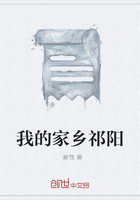'Since yesterday, my noble lord.' Jim spoke meditatively.He was resolving upon a bold stroke.Why not make a confidant of this kind gentleman, instead of the parson, as he had intended? The thought was no sooner conceived than acted on.'My lord,' he resumed, 'Ihave heard that you are a nobleman of great scope and talent, who has seen more strange countries and characters than I have ever heard of, and know the insides of men well.Therefore I would fain put a question to your noble lordship, if I may so trouble you, and having nobody else in the world who could inform me so trewly.'
'Any advice I can give is at your service, Hayward.What do you wish to know?'
'It is this, my baron.What can I do to bring down a young woman's ambition that's got to such a towering height there's no reaching it or compassing it: how get her to be pleased with me and my station as she used to be when I first knew her?'
'Truly, that's a hard question, my man.What does she aspire to?'
'She's got a craze for fine furniture.'
'How long has she had it?'
'Only just now.'
The Baron seemed still more to experience regret.
'What furniture does she specially covet?' he asked.
'Silver candlesticks, work-tables, looking-glasses, gold tea-things, silver tea-pots, gold clocks, curtains, pictures, and I don't know what all--things I shall never get if I live to be a hundred--not so much that I couldn't raise the money to buy 'em, as that to put it to other uses, or save it for a rainy day.'
'You think the possession of those articles would make her happy?'
'I really think they might, my lord.'
'Good.Open your pocket-book and write as I tell you.'
Jim in some astonishment did as commanded, and elevating his pocket-book against the garden-wall, thoroughly moistened his pencil, and wrote at the Baron's dictation:
'Pair of silver candlesticks: inlaid work-table and work-box: one large mirror: two small ditto: one gilt china tea and coffee service: one silver tea-pot, coffee-pot, sugar-basin, jug, and dozen spoons: French clock: pair of curtains: six large pictures.'
'Now,' said the Baron, 'tear out that leaf and give it to me.Keep a close tongue about this; go home, and don't be surprised at anything that may come to your door.'
'But, my noble lord, you don't mean that your lordship is going to give--'
'Never mind what I am going to do.Only keep your own counsel.Iperceive that, though a plain countryman, you are by no means deficient in tact and understanding.If sending these things to you gives me pleasure, why should you object? The fact is, Hayward, Ioccasionally take an interest in people, and like to do a little for them.I take an interest in you.Now go home, and a week hence invite Marg--the young woman and her father, to tea with you.The rest is in your own hands.'
A question often put to Jim in after times was why it had not occurred to him at once that the Baron's liberal conduct must have been dictated by something more personal than sudden spontaneous generosity to him, a stranger.To which Jim always answered that, admitting the existence of such generosity, there had appeared nothing remarkable in the Baron selecting himself as its object.The Baron had told him that he took an interest in him; and self-esteem, even with the most modest, is usually sufficient to over-ride any little difficulty that might occur to an outsider in accounting for a preference.He moreover considered that foreign noblemen, rich and eccentric, might have habits of acting which were quite at variance with those of their English compeers.
So he drove off homeward with a lighter heart than he had known for several days.To have a foreign gentleman take a fancy to him--what a triumph to a plain sort of fellow, who had scarcely expected the Baron to look in his face.It would be a fine story to tell Margery when the Baron gave him liberty to speak out.
Jim lodged at the house of his cousin and partner, Richard Vine, a widower of fifty odd years.Having failed in the development of a household of direct descendants this tradesman had been glad to let his chambers to his much younger relative, when the latter entered on the business of lime manufacture; and their intimacy had led to a partnership.Jim lived upstairs; his partner lived down, and the furniture of all the rooms was so plain and old fashioned as to excite the special dislike of Miss Margery Tucker, and even to prejudice her against Jim for tolerating it.Not only were the chairs and tables queer, but, with due regard to the principle that a man's surroundings should bear the impress of that man's life and occupation, the chief ornaments of the dwelling were a curious collection of calcinations, that had been discovered from time to time in the lime-kiln--misshapen ingots of strange substance, some of them like Pompeian remains.
The head of the firm was a quiet-living, narrow-minded, though friendly, man of fifty; and he took a serious interest in Jim's love-suit, frequently inquiring how it progressed, and assuring Jim that if he chose to marry he might have all the upper floor at a low rent, he, Mr.Vine, contenting himself entirely with the ground level.It had been so convenient for discussing business matters to have Jim in the same house, that he did not wish any change to be made in consequence of a change in Jim's domestic estate.Margery knew of this wish, and of Jim's concurrent feeling; and did not like the idea at all.
About four days after the young man's interview with the Baron, there drew up in front of Jim's house at noon a waggon laden with cases and packages, large and small.They were all addressed to 'Mr.Hayward,'















